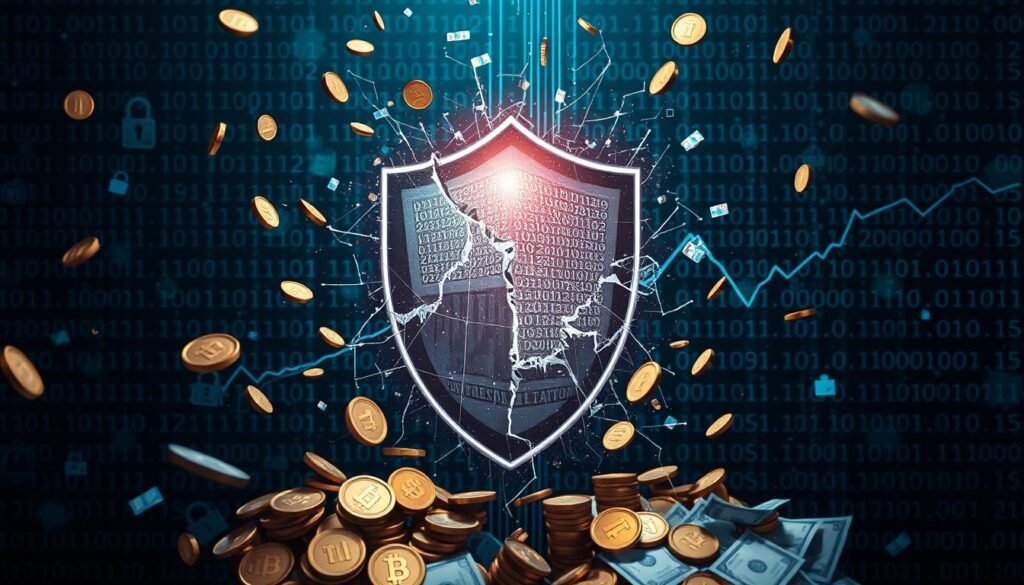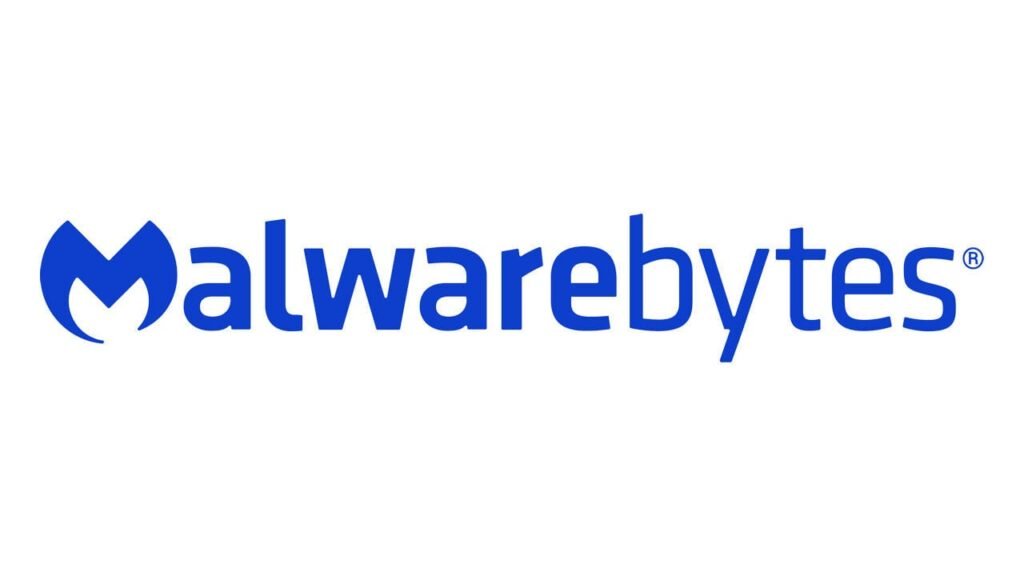Did you know cybercrime cost a whopping $8 trillion in 2023? That's over $250,000 every second. This shows how important it is for businesses to focus on cybersecurity. Cyber-attacks cost each American entrepreneur about $8,000 a year, as the National Cyber Security Alliance points out1.
IBM's Ponemon Institute found that small businesses face an average data breach cost of $2.98 million. This highlights the big financial hit businesses take from cyber incidents1. With new tech coming out, staying ahead of threats is key. To keep your business safe, use strong passwords, multi-factor authentication, and watch out for phishing scams. Also, make sure all your software is updated.
Key Takeaways
- • The financial impact of cyber-attacks is substantial, costing American businesses thousands annually.
- • Small businesses are particularly vulnerable, with average data breaches costing millions.
- • Prioritizing cybersecurity awareness can significantly reduce the risk of cyber threats.
- • Implementing strong passwords and multi-factor authentication is crucial for safety.
- • Regular software updates help protect against evolving cyber threats.
Understanding Cybersecurity Threats
In today's fast-changing world, it's key to know the dangers that could harm your business. Threats like phishing and ransomware are getting smarter, putting all businesses at risk. Experts say cybercrime could cost over $24 trillion by 2027, making it crucial to act now to protect your assets and keep your data safe2.
These threats can have a big impact, with 74% of data breaches happening because of human mistakes. This shows how important it is for employees to be aware of these dangers. Also, phishing is behind 45% of ransomware attacks, with a 68% rise in 20233. This highlights the need for good training to stop these attacks.
In 2023, almost one-third of employees used apps without permission, even though 92% of companies require IT approval3. This risky behavior means we need to focus more on following rules and keeping things secure. Also, it takes about 150 days to find out if a breach has happened, giving attackers plenty of time to cause harm4.
New threats like Advanced Persistent Threats (APTs) and social engineering attacks make things even harder. These threats use tricks to get into networks. As the world of cybersecurity keeps changing, it's essential to understand these threats to keep your business safe.
| Threat Type | Key Statistic |
|---|---|
| Cybercrime Costs | Expected to exceed $24 trillion by 20272. |
| Data Breaches | 74% involve human interaction2. |
| Phishing in Ransomware | Accounts for 45% of ransomware attacks3. |
| Employees using Unapproved Apps | 29% of employees engage with unapproved apps3. |
| Breach Detection Time | Average of 150 days to detect a breach4. |
What Makes Cybersecurity Important for Businesses?
Cybersecurity is key for businesses that use technology every day. They need to keep their data safe to keep customers and partners trusting them.
Cyber attacks can cost a lot. A data breach can cost up to $4.45 million. This includes legal fees and fines5. Some ransomware attacks have caused damages of $100 million, showing the need for strong data protection5.
Good cybersecurity keeps businesses running smoothly. With spending on security expected to hit $215 billion by 2024, it's clear that cybersecurity is a must5.
The cost of cybercrime is expected to hit $8.15 trillion in 2023. This shows that investing in cybersecurity is worth it5. Every business needs to protect its data to succeed in today's digital world.
The Financial Impact of Cyber Attacks
Cyber attacks on businesses have become a huge problem. The cost of cybercrime is expected to jump from $8 trillion in 2023 to almost $24 trillion by 20276. This puts a lot of pressure on companies, especially the smaller ones. About 46% of cyberattacks target businesses with less than 1,000 employees, causing an average loss of $4.45 million6.
In 2023, over 40% of small businesses faced a cyberattack. This shows how urgent it is for them to improve their cybersecurity. The costs of recovering data and boosting security can hurt a company's finances6. Losing customer trust is also a big issue. Companies hit by data breaches may lose customers who prefer to do business with those they see as safer.
Ransomware attacks have also increased, hitting the financial sector hard. In 2021, the average cost of a data breach in this sector was $5.72 million7. Companies hit by ransomware not only had to pay the ransom but also faced downtime and lost productivity. Around 40% of those who paid the ransom spent over $1 million to get their data back8.

It's important to note that the effects of cyber attacks go beyond just money. A good cybersecurity plan and response strategy are key to dealing with these attacks8.
| Type of Cost | Estimated Amount |
|---|---|
| Average Cost of Data Breach | $4.45 million |
| Ransom Payment (if applicable) | $1 million+ |
| Cost to Recover Data | Variable |
| Loss of Customer Trust | Variable |
Common Types of Cybersecurity Threats
Today, businesses face many cybersecurity threats. These threats can harm operations and cause big financial losses. Ransomware is a big problem, with losses reaching $59.6 million in 2023, up 74% from 20229. Phishing scams are also common, trying to trick people into giving out personal info10.
Business Email Compromise (BEC) fraud lost $2.9 billion in 2023, with 21,489 complaints9. This shows how important it is for businesses to have strong security.
It's key to know about these threats to protect against them. The FBI says cybercrime losses hit $12.5 billion in 2023, a 22% jump from 20229. Insider threats, from mistakes or bad actions by employees, are also a big risk10.
- • Ransomware: A type of malware that encrypts your files, demanding payment for decryption.
- • Phishing: Tricks users through deceptive emails or websites to gather sensitive information.
- • Insider Threats: Risk originates from inside the organization, either through error or malice.
- • Malware: Encompasses various forms of harmful software, such as viruses, worms, and spyware11.
As cyber threats grow, businesses must learn about these attacks to reduce risks. They should use strong passwords, email security tools, and antivirus software10.

Top Cybersecurity Threats Facing Businesses Today
In today's digital world, it's key for businesses to know the top cybersecurity threats. These include phishing scams, ransomware attacks, and insider threats. Knowing about these can help you protect your business.
Phishing Scams
Phishing scams are a big problem for businesses. Cybercriminals use smart tricks to get employees to share sensitive info. With more people working from home, the risk of phishing attacks goes up12.
Ransomware Attacks
Ransomware attacks are a major threat. They could cost businesses $11.5 billion and hit a new victim every 14 seconds13. Demands can be huge, sometimes over $10 million12. This can stop businesses from working and take a long time to recover.
Insider Threats
Insider threats are a big worry. They can come from employees or partners. These threats can be intentional or accidental, making them very dangerous. Over 63% of data breaches are linked to third-party access13. With more people working from home, social engineering attacks are getting more common14.

Network Vulnerabilities
Business networks often have weaknesses that can cause big security problems. It's key to know and fix these network vulnerabilities to keep your data safe. With cybercriminals getting smarter, it's important to act fast to find and fix security flaws.
Common Security Flaws
Old software and devices set up wrong are big cybersecurity weaknesses for companies. Hackers use these to sneak into systems. For example, in 2021, the FBI's Internet Crime Complaint Center saw $6.9 billion lost to cybercrime, showing how crucial it is to stay alert and take steps to prevent problems15.
Keeping your operating system updated is key to avoiding these problems. Regular updates and patches can greatly reduce your risk. Also, doing regular checks, like penetration tests, can find and fix network vulnerabilities before they're used15.
Using strong passwords, like changing default ones and making each password unique, helps protect your network. These steps can greatly reduce the chance of being hacked, as weak passwords are a big reason for breaches, costing around $4.81 million each16.
Also, using tools to watch for threats early and training employees to spot risky actions can help. Training is key, as mistakes by people are a big part of security issues, with insider threats costing about $4.99 million each16.
To learn more about the big security risks for businesses, check out this resource on network security risks. Taking a serious step to find and fix security flaws will protect your company from the growing danger of cyber threats.
The Rise of Malware Infections
The rise of malware infections is a big cybersecurity threat for businesses today. With more malware attacks happening every year, it's key to know the different types of malware. Ransomware has seen a big jump, showing how important it is for businesses to stay alert and informed.
Types of Malware to Watch Out For
There are several types of malware that can harm organizations. Here are a few to watch out for:
- • Viruses: These can attach to clean files and spread fast across systems.
- • Worms: Unlike viruses, worms can spread on their own and find vulnerabilities without help.
- • Ransomware: This has become more common, with many businesses facing demands to pay to get their data back.
- • Spyware: This malware secretly collects user information, often without permission.
- • Fileless malware: This type stays in memory and is hard to detect, making it a growing threat.
Businesses need to strengthen their defenses against these cybersecurity threats. They should use strong antivirus and anti-malware tools. Keeping up with the latest cyber threats is crucial for protecting your business. This is especially true for avoiding malware infections, which often come through phishing emails and other tricks to learn more17.
Social Engineering Attacks: A Growing Concern
In today's digital world, social engineering attacks are a big threat. They use tricks like phishing, vishing, and smishing to get people to share secrets. Phishing is the most common, causing 36% of data breaches18. It's important to know about these threats and why they work.
Training employees to spot these attacks is key. Even with technology, people can still make mistakes19. Using things like multi-factor authentication (MFA) can help stop unauthorized access18.
Cybercriminals are getting smarter, so fighting social engineering attacks is crucial. Regular training and following security rules can help a lot20. By focusing on security, you can keep your organization safe from these tricks.




